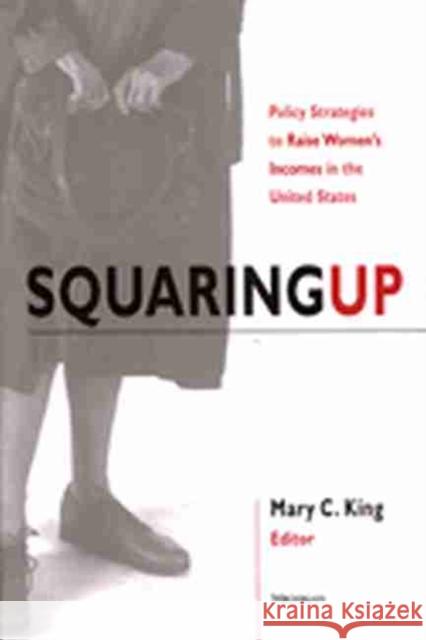Squaring Up: Policy Strategies to Raise Women's Incomes in the United States » książka
Squaring Up: Policy Strategies to Raise Women's Incomes in the United States
ISBN-13: 9780472067473 / Angielski / Miękka / 2001 / 296 str.
Despite three decades of progress, American women's incomes still average just over half of those of men. This income gap is both a cause and a symptom of gender inequity. The gap means that women are only half as able as men to support themselves and their families, are too often mired in poverty, and have less power than men do in their families, communities, and governments. In this book, economists present readable, informative, and compelling assessments of several policy strategies capable of bringing down the barriers to economic equality for women and men.
More specifically, Squaring Up discusses the potential of ten different strategies to raise women's incomes. These strategies fall into three categories: those intended to reduce the negative impact of childrearing on women's incomes, those designed to raise the wages in the jobs where most working women are concentrated, and those focused on moving women into better-paying positions. The chapters on each policy strategy represent both a state-of-the-art assessment of the potential of each strategy to raise American women's incomes and an introduction to the topic that includes information on current programs and directs the reader to the most important literature on the topic. The policies considered constitute a pluralist agenda for women, one that can be supported by people across the American political spectrum as it calls for support for stay-at-home mothers, poor women, women in stereotypical "women's jobs," women in non-traditional employment, high-powered women executives and older women.
This book features contributions from many of the best economists working on issues of relevance to women today, including Nancy Folbre, recent recipient of a MacArthur "genius" fellowship, and Barbara Bergmann, previous president of the International Association for Feminist Economics and author of The Economic Emergence of Women. Squaring Up is designed for courses in a wide range of disciplines, including public policy, political science, economics, sociology, and women's studies. It is also intended for policy makers, opinion leaders, activists, and the general public interested in women's issues.
Mary C. King is Associate Professor of Economics, Portland State University.











